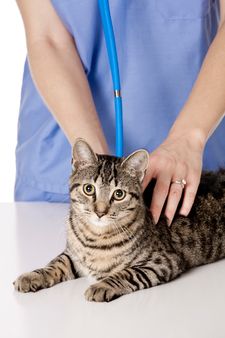3 Tips for Working With Your Veterinarian to Set Up a Vaccination Schedule

The easiest and most effective method of ensuring your pet lives a long and healthy life is to have it vaccinated. Your veterinarian will tell you which vaccines your cat or dog should get to prevent certain diseases, and at what age your pet should receive them to gain the most benefit and reduce the risk of side effects.
3 Tips for Setting Up a Vaccination Schedule With Your Veterinarian
1. Know Which Vaccines Your Pet Needs
Your veterinarian can help you understand how vaccines work, what their benefits and risks are, and which vaccines your pet needs. Vaccines have antigens that mildly stimulate the immune system to recognize a certain disease. If your pet comes in contact with that disease later on, its immune system will recognize it and be prepared to fight it off or reduce its severity.
2. Understand the Benefits & Risks
 Vaccines are divided into two categories: core vaccines and non-core vaccines. Core vaccines are administered to all pets to protect against dangerous viral diseases. For dogs, these include vaccines for rabies, distemper, parvovirus, and canine hepatitis. For cats, they include vaccines for feline distemper, calicivirus, rhinotracheitis, and rabies. Non-core vaccines are administered to pets based on their potential risk of exposure—for example, whether they are boarded in a kennel. Some of these are bacterial vaccines and can occasionally cause an adverse reaction. Discuss the benefits and risks with your veterinarian to determine the best course of action for your pet.
Vaccines are divided into two categories: core vaccines and non-core vaccines. Core vaccines are administered to all pets to protect against dangerous viral diseases. For dogs, these include vaccines for rabies, distemper, parvovirus, and canine hepatitis. For cats, they include vaccines for feline distemper, calicivirus, rhinotracheitis, and rabies. Non-core vaccines are administered to pets based on their potential risk of exposure—for example, whether they are boarded in a kennel. Some of these are bacterial vaccines and can occasionally cause an adverse reaction. Discuss the benefits and risks with your veterinarian to determine the best course of action for your pet.
3. Consider Your Pet’s Age, Lifestyle & Medical History
Depending on the type of vaccine your pet will receive, your veterinarian will schedule your appointment based on the animal’s age, medical history, and other factors. For example, both puppies and kittens will usually receive antibodies in their mother’s milk and will not begin receiving vaccines until about six or eight weeks, with the final dose around 16 weeks. Adult dogs and cats can usually receive the rabies shot once each year or once every three years, depending on the pet owner’s preference. Some states have laws that dictate how often the rabies vaccine should be given.
If you are looking for reliable, caring pet care in the Greater Honolulu area, turn to the skilled veterinarians at Ohana Veterinary Hospital. With over 20 years of experience, they believe in providing quality services to keep your pets happy and healthy for years to come. Call them today at (808) 845-1762, or visit them online to learn more about their practice and the many excellent pet care services they provide.
About the Business
Have a question? Ask the experts!
Send your question

